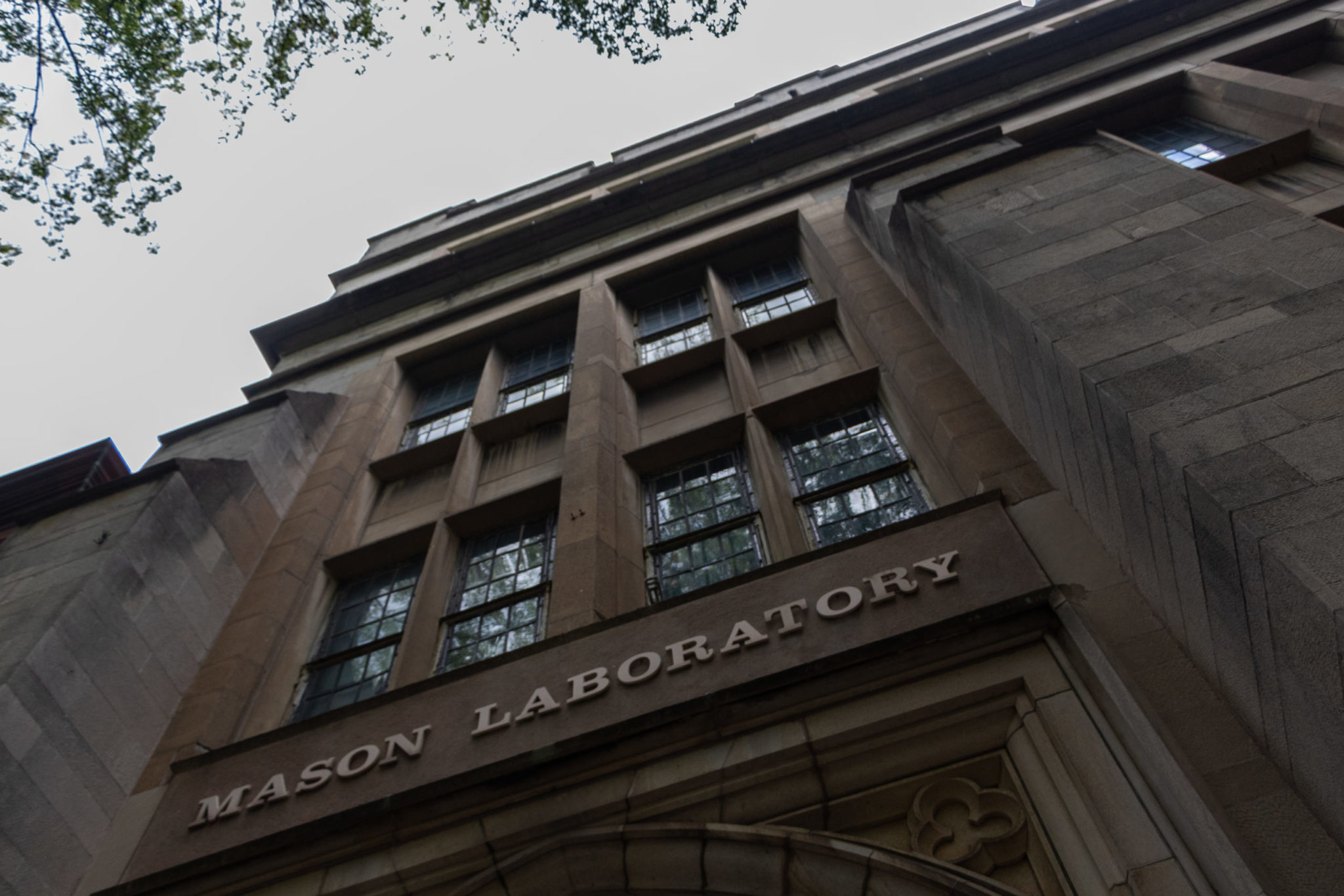Fernandez de la Mora receives Fuchs Memorial Award for aerosol research
The International Aerosol Research Assembly presented Juan Fernandez de la Mora the award at the 2022 International Aerosol Conference.

Zoe Berg, Senior Photographer
Electrospray — a burgeoning area of study in aerosol sciences — could be used for aerospace propulsion, ionizing particles for further research and a wide variety of further medical applications. The charged spray is used in the production of charged nanoparticles for electropropultion in space.
Yale professor Juan Fernandez de la Mora ENG ’81, has been recognized for his work on electrospray and experimental methods to distinguish particles of different sizes with a high resolution. The International Aerosol Research Assembly, or IARA, awarded the Nikolai Albertovich Fuchs Memorial Award to de la Mora earlier this month.
“[De la Mora] has been a respected researcher in the field for decades,” said Jeffrey Brock ’92, dean of Yale School of Engineering and Applied Sciences. “From his work with Nobel Prize winner John Fenn [GRD ’40] to his innovative developments in instrumentation, Juan’s contributions to the field of aerosol science are plentiful and ongoing. It is gratifying to see him rewarded by his peers in the community, and wonderfully affirming of our excellence in this field within Yale’s School of Engineering and Applied Science.”
The Fuchs Memorial Award is given in honor of the late professor Nikolai Albertovich Fuchs, considered the “father of aerosol science.” Considered one of the highest honors for researchers in the field, it “recognizes outstanding contributions to the field of aerosol science and technology.”
De la Mora is from Madrid, Spain, where he studied aeronautical engineering and worked as an engineer at the aerodynamics department at Construcciones Aeronáuticas. He received his doctorate at Yale under Daniel E. Rosner and joined Sheldon Friedlander’s lab group at UCLA as a postdoctoral scholar.
Working in the Mechanical Engineering and Material Science department at Yale since 1981, De la Mora started research on nanoparticles, which was primarily theoretical. This work led to the development of an instrument called the Differential Mobility Analyzer, which can size particles as small as a few nanometers.
“I am very happy with this prize and very grateful to the [IARA] to have been kind enough to give it to me,” said De la Mora.
De la Mora received funding for his research from the National Institute of Health and has partnered with the NanoEngineering Corporation to use his particle sizing methods for medical diagnostics. He explained that while this is not necessarily the best method for diagnosing COVID-19 — as there have already been myriad of practical and cost-effective techniques developed for this purpose — but it could have a lot of potential for many other viruses and applications. “[The Fuchs award] is a prestigious award, in my view the most prestigious award in the field of aerosol, and it reflects positively about the contribution of Yale engineering to the field,” said Alessandro Gomez, professor of mechanical engineering. “I think Yale has a pretty strong position in the field of aerosol science.”
After a suggestion by John Fenn, a Yale professor in chemical engineering, De la Mora began working on electrospray. For this electrospray research, De la Mora received funding from the U.S. Air Force, as it has many civilian and military applications.
Although electrospray is currently not nearly effective enough to be used to launch spacecraft into orbit, its application can be practical in the vacuum of space. For example, Boston company Busek uses electrical propulsion to maintain extremely precise positioning of their satellites that are used to measure gravitational waves.
De la Mora explained that “once a satellite becomes useless,” scientists have a “moral obligation to deorbit it.” Electrospray micropropulsion systems can be used to very slowly bring such satellites out of orbit and back to Earth.
Students who have studied under De la Mora emphasize his attentiveness to his students.
“What I really appreciate about Professor de la Mora is that he fundamentally cares that we understand the material,” said Ryan Smithers ’24. “There have been countless times I’ve had particular difficulty in the homework and he’s always taken the time to walk me through it.”
The Fuchs Memorial Award is presented every four years at the International Aerosol Conference, which was in Athens, Greece, this year.







